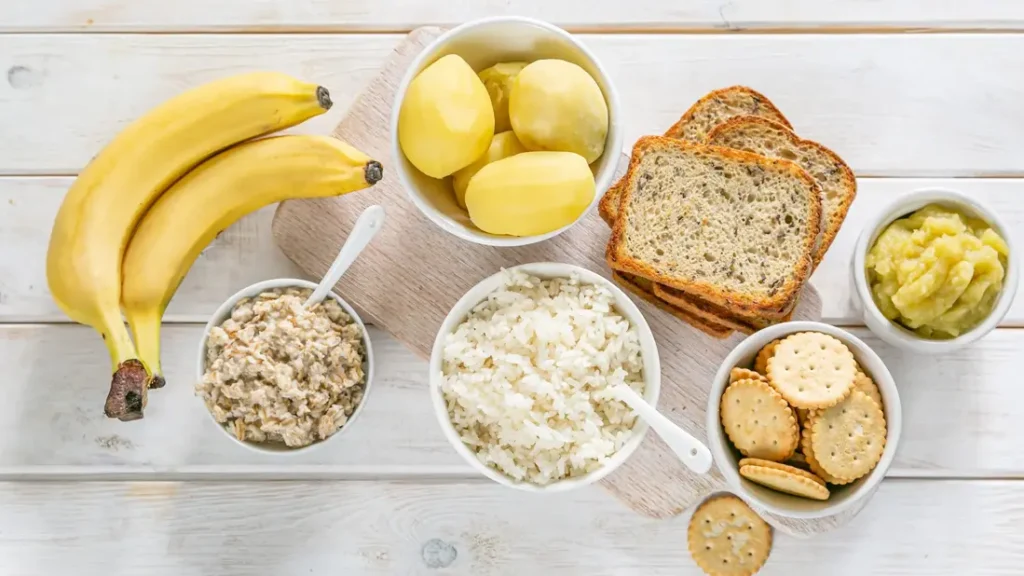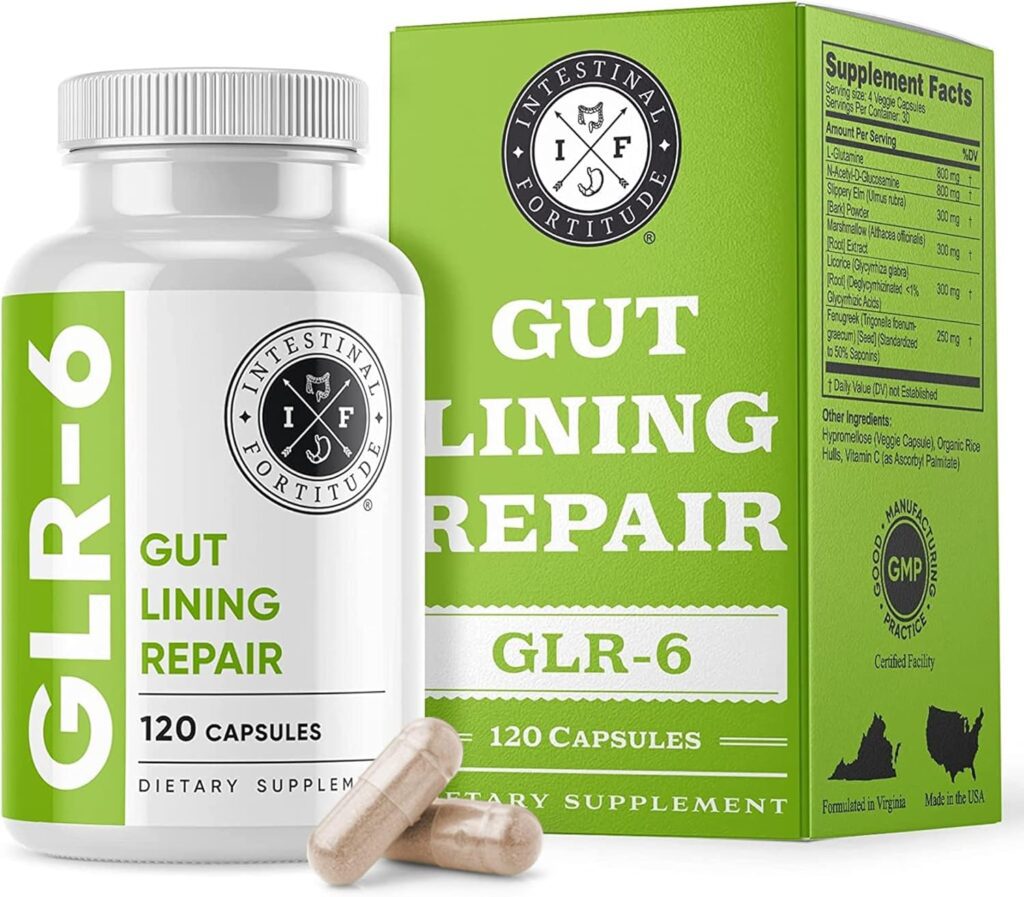Occasional diarrhea can be more than just inconvenient—it can completely disrupt your day, leave you feeling drained, and even interfere with your confidence in everyday activities. While short-term diarrhea is often your body’s way of flushing out something it doesn’t agree with, ongoing or repeated episodes may call for a deeper look at your digestive health.
The good news? There are natural, gentle ways to support your digestive system and bring things back into balance. In this blog, we’ll cover five effective and natural ways to reduce diarrhea—starting with the foundation of gut health.
1. Strengthen the Gut Lining with a Gut Health Supplement
When it comes to reducing diarrhea, one of the most important first steps is supporting the integrity of your gut lining. If the intestinal wall is weak or irritated, it may lead to increased permeability and disrupted digestion—often contributing to loose stools, urgency, and cramping.
That’s where a gut health supplement like GLR-6 by Intestinal Fortitude can make a meaningful difference. GLR-6 is formulated with ingredients traditionally used to support digestive wellness, including L-Glutamine, Slippery Elm, Marshmallow Root, DGL Licorice Root, and Fenugreek. These herbs and amino acids work synergistically to help soothe the gastrointestinal tract and promote a more stable digestive environment.
By using a gut health supplement consistently, many people find it helps their gut feel more balanced—especially when paired with healthy habits like eating mindfully and staying hydrated. While results vary, this supplement can serve as a helpful starting point for those looking to naturally reduce episodes of diarrhea and strengthen overall gut health.
2. Rebuild with the Right Foods
Next, consider the role of food in managing diarrhea. During and after an episode, your digestive system is often in a fragile state, so it’s essential to nourish it without overwhelming it.
The BRAT diet—bananas, rice, applesauce, and toast—has long been recommended for its simplicity and ease on the stomach. These foods are low in fiber and help firm up stools without irritating the gut. However, it’s important not to stay on this diet too long, as it doesn’t provide all the nutrients your body needs.
As you start to feel better, slowly introduce other bland, easy-to-digest foods like:
- Steamed carrots
- Boiled potatoes
- Bone broth
- Plain oatmeal
Avoid spicy, greasy, or dairy-heavy foods while recovering, as they can trigger further irritation. Instead, focus on cooked vegetables and soft proteins like chicken or eggs, which are easier for your body to process.


3. Stay Hydrated with Electrolytes
One of the biggest risks with diarrhea—especially when it’s prolonged—is dehydration. When your body loses fluids quickly, it also loses important electrolytes like sodium and potassium, which are essential for muscle function, nerve activity, and overall cellular balance.
To counteract this, drink plenty of clear fluids throughout the day. Water is essential, but for optimal rehydration, include sources of natural electrolytes. Some great options include:
- Coconut water
- Electrolyte tablets (sugar-free)
- Homemade oral rehydration drinks with a pinch of salt and a teaspoon of sugar in water
You can also sip warm broths, which not only hydrate but also provide minerals and amino acids to support your gut during recovery. Avoid alcohol, caffeine, and sugary sodas, which can worsen dehydration and irritate your digestive tract.
4. Use Probiotics to Support a Healthy Microbiome
Another natural way to reduce diarrhea is by replenishing the good bacteria in your gut. Probiotics are beneficial microorganisms that help maintain a balanced gut microbiome, which plays a critical role in digestion, immune health, and even mood.
Episodes of diarrhea—especially if caused by illness, stress, or medications like antibiotics—can strip the gut of healthy bacteria. Reintroducing probiotics through diet or supplements can help restore balance and encourage more regular bowel movements.
Some probiotic-rich foods include:
- Yogurt with live cultures (avoid if sensitive to dairy)
- Kefir
- Sauerkraut
- Kimchi
- Miso soup
Alternatively, a high-quality probiotic supplement can offer a convenient way to introduce beneficial strains like Lactobacillus and Bifidobacterium into your routine. Over time, this can help reduce episodes of diarrhea by improving the resilience of your digestive system.
5. Manage Stress and Give Your Gut Time to Heal
Last but certainly not least, take a closer look at your stress levels. Many people are surprised to learn that the gut and brain are closely connected. Stress, anxiety, and lack of rest can significantly affect your digestion—sometimes triggering or worsening diarrhea, especially in individuals with IBS (Irritable Bowel Syndrome) or other sensitive gut conditions.
To support recovery and long-term gut comfort:
- Try deep breathing or guided meditation to reduce anxiety
- Take short walks outdoors to help with digestion and circulation
- Prioritize 7–9 hours of quality sleep each night
- Avoid multitasking while eating—slow down and chew your food well
Taking even 10–15 minutes a day to check in with your body and intentionally relax can make a big difference. When your nervous system calms down, your digestive system often follows suit.
Conclusion: Start With a Strong Foundation
Reducing diarrhea naturally isn’t about finding a one-size-fits-all solution—it’s about creating a strong, supportive environment in your gut so your body can function the way it’s meant to.
That starts with nourishing your gut lining, and GLR-6 by Intestinal Fortitude offers a thoughtful way to do just that. With a blend of time-tested ingredients that support gut resilience, it can be a powerful addition to your daily wellness routine—especially when paired with clean eating, hydration, probiotics, and mindful living.
As always, listen to your body. If symptoms persist or become severe, be sure to speak with a healthcare professional. But for many people, these five natural habits can help create a calm, comfortable digestive experience—one step at a time.
Affiliate Disclosure
Some of the links on this site are affiliate links. This means that if you click on the link and purchase the item, we may receive an affiliate commission at no extra cost to you. I only recommend products or services that I believe will add value to my readers, however, some (not all) do pay us to be on this blog. Your support and theirs help keep this blog running, and I genuinely appreciate it.
Medical Disclaimer
The information provided on this website is for educational purposes only and is not intended as medical advice. This blog or the writer is not a licensed healthcare professional, and the content should not be used as a substitute for professional medical diagnosis, treatment, or advice. Always consult with your physician or other qualified healthcare provider before starting any new treatment or making any changes to your healthcare routine.

